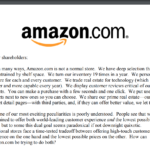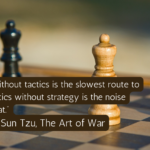Photo by Taryn Elliott from Pexels
Have you ever said, “I was not aware of this thing, good you told me” or “Maybe I am missing something”? Possibly something unknown to discover there!
As a product leader, you are a jack of all trades and a master of none (or maybe master of just one). You are a generalist, and you don’t know many things. It’s OK to admit this!
There are things that you “Know”
There are things that you “Know you don’t know”.
And there are plenty of things that you “Don’t know you Don’t know”.
And there are few things that “You should know however you don’t know ” – most dangerous.
As a leader or product manager, we live in uncertainty and constantly trying to clear out the grey areas. Keeping a tab on Unknown unknowns is a basic ask from a leader.
Why are the unknown unknowns dangerous?
- You may look naive
- You bring in the risk to the product
- You may continue to get surprises and then be in the firefighting mode
- Shows your unpreparedness
- Your team might get frustrated
Here are good ways to know your unknown unknowns.
Don’t fear the unknown. Google/YouTube it!
You can’t forever say, ‘I don’t know about it. You have all the tools in the world and time to figure it out. A 5 mins YouTube video is enough for you to be aware of the topic and get started on it.
Be curious to know all the things in your domain. Be the master.
Learn every day what’s new in your domain. People continue to work hard and push the envelope. New standards evolve, new frameworks are defined, better models are built. Someone is constantly working to solve common problems and define new and easy ways to do things. If you stay away from it, you fall behind the trend and soon go out of business.
Be careful in listening to what others have to say.
Listening carefully and understanding the core message can unearth a lot of unknowns. You can’t always be talking and ignoring what others say. If people are not comfortable bringing their perspective, they will stop talking to you and then talk about it behind you. Your team, competitor, customers, exec team, and partners have a lot to say. It can be criticism, it can be a new way of thinking and solving a problem, or it can be just a repetition of known problems – by all means, listen. Jot down and register the points.
Ask if you are missing something?
In hindsight, this can always happen. Your team might assume many things that you should be aware of and decide that might surprise you. For you, the other way round makes complete sense, and wondering why the team missed it big time. Take a step back and confirm if you are missing something big. It’s good to ask!
Wander around and get lost at times.
If you are a product manager and have managed different products from various domains, you have already done it. If not, try doing something different than your domain to discover how other product managers work. There are great product presentations on YouTube. Attend product webinars, workshops, or offline events. I am sure you will discover something new and fresh to energize you when you return to work. Reading off-chart books might get your there as well. A different perspective of thinking to solve the same problems may end up solving it in a better way.
Challenge your assumptions.
We take a lot of things for granted. We expect things to work out the way we thought. Validate your assumptions before there as surprises or disasters for failure. Better to document, better to review, survey, and knock it off with a confirmation. Take those assumptions to your team and add more if you have missed anything. These might your risks or guts, which you might want to take. But be aware of those and don’t leave them as unknown unknowns. Be ready if someone challenges your assumptions too!
Pre-mortem as a technique to unlock unknowns.
It’s a new concept, and I haven’t tried it yet. It sounds great and should ideally work. Once you have a full plan ready for what you will work on and solve the problem, set up a ‘Pre-mortem’ meeting. Assume that you worked over a scheduled period and then the product has failed. Now ask the team what would have gone wrong and what would have done better? You will surely get some surprises and uncover the unknown. It’s way better to get these before we start rather than as a retrospective post-launch. Here are some more pointers around ‘Pre-mortem‘.
Once you are done with your homework, please take it to your team.
After working hard and spending enough time, you come up with a concept, assumptions, benefits a way to solve a given problem; it’s time to take it to your team for feedback. You might be amazed how quickly you discover something new that you have not encountered during your homework. These are the unknown unknowns that now turns into your known unknowns to work on and come back. Let these inputs come and accept them as gaps to address. Repeat it, and you will see a much better solution to build. If you don’t leverage your team’s vast expertise, differences, and diversity, you will never unlock the unknowns.


Mangesh is Product Leader
Full Bio here – https://mangesh.bhamre.in











